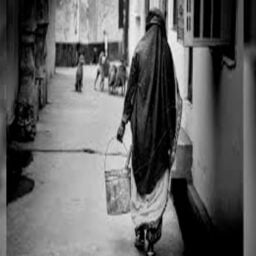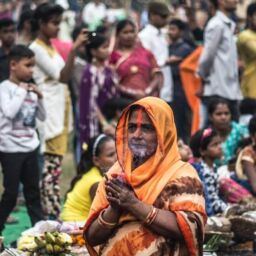
Indian Hotel and Restaurant Association (AHAR) & Anr. v. The State of Maharashtra & Ors.
Writ Petition (Civil) No. 24 & 119 Of 2017
Judgment dated: January 17, 2019
Bench: J. A.K. Sikri (Author) & J. Ashok Bhushan
BACKGROUND
This case was popularly known as the Dance Bar case. The Government of Maharashtra had added Section 33A and 33B vide Bombay Police Amendment Act, 2005 in Maharashtra Police Act, 1951, (former Bombay Police Act, 1951) which prohibited any kind of dance performance in an eating-house, permit room or, beer bar, this was stated in section 33A of the said Act but an exception was made to it, in cases where the dance performance was held in a theater, or a club (where entry was restricted to members only) this had made a limitation on the places to dance, which means that dance performances can be conducted in the three-star hotels and above but in one or two-star hotel no dance performances can be made, this was stated in section 33B of the Act.
A contention was made in the Bombay High Court that the prohibition violates the fundamental rights of the petitioners guaranteed under Article 14, 19(1)(a), 19(1)(g), and 21 of the Constitution of India. The respondent had stated “it noticed that prostitution rackets were being run in hotel establishments in which dance programs were being conducted. Even such dance forms were observed as obscene by the State”. (1)
The abovementioned clauses were declared unconstitutional by the Bombay High Court, The Bombay High Court held that the statewide ban on dance performances in bars is illegal and in violation of the Fundamental Rights enshrined under Article 14, 19(1)(a), 19(1)(g) and 21 of the Constitution of India.
After this judgment, the state of Maharashtra introduced the second amendment to the 2014 Act which was referred to as The Maharashtra Police (Second Amendment) Act, 2014, wherein Section 33B was deleted but section 33A was still enacted. A writ petition against the same was filed (2), where Section 33A was challenged on the same ground violating Article 14, 19(1)(a), 19(1)(g), and 21 of the Constitution of India. In 2015 the court had stayed the operation and said that “No performance of dance shall remotely be expressive of any kind of obscenity.”
The State had enacted Maharashtra Prohibition of Obscene Dance in Hotel, Restaurant and Bar Rooms and Protection of Dignity of Women (Working therein) Act, 2016. Many provisions of this Act violated Fundamental Rights. Section 9 of the Act had imposed restrictions on the opening timing of barroom from 6 pm to 11:30 pm, further section 12 restricted the serving of alcohol in a barroom.
An appeal has been filed before the Hon’ble Supreme Court of India against the Bombay High Court judgment to strike down the Maharashtra government’s statewide prohibition on the dance performances in the bars by the Government of Maharashtra. In response, many writs were filed by the restaurants and hotel association, Bhartiya Bar Girls Union, and others. But only three writs under article 32 were accepted one by the Association of various Hotels owners and Bar owners, second by R.R. Patil foundation, and last by Bhartiya Bargirls Union.
CONTENTIONS MADE BY THE GOVERNMENT OF MAHARASHTRA
- The Government justified their argument by giving so-called intelligible differentia is on the ground that all the women who perform in the dance bars or the banned establishment came from the vulnerable part of society, i.e. most of them are trafficked into bar dancing.
The Supreme Court of India had denied the contention of the government that most of the girls are trafficked. The Hon’ble Supreme Court said that the above legislation is made on the hypothesis that different dance bars are being used as a pick-up point for the girls and all the girls are trafficked into this.
- The next contention was made based on the degree of harm that is caused to the environment in the banned establishments. The court cited Ram Krishna Dalmia Case(3) where it was held that legislation can take measures to recognize the degree of harm, but here the government of Maharashtra had failed to justify the classification between the exempted and prohibited establishments and their surrounding atmosphere in the context of vulnerability. Unfortunately in this case the appellant is under the presumption that the rich and elite class of the society has higher standards, morality, and decency. Court held these contentions as “misconceived notions of a bygone era”.
THE ARGUMENT MADE BY THE HOTEL AND RESTAURANT ASSOCIATION
The SNDT Report shows that only 17.40% are from Maharashtra and the Bar owners have been exploiting them by cutting their pay and sharing the tips received. The women working as bar dancers or waiters are not generally paid and solely dependent on the tips which are also shared in 30 to 60% with the bar owners. They submitted that this activity of the young girls is Res extra commercium. Such dances or activities which are obscene shall be considered as res extra commercium and is the subject matter of Article 19(1)(g) of the Constitution of India. Due to the ban, 75000 women workers became unemployed, many of which did not have any other marketable skills. Research shows 68% of the women in the dance bars were sole bread earners of their families. Unemployment and several erstwhile women bar dancer to leave the state and resort to prostitution, while many of them committed suicide. The prohibition violates the Fundamental Rights enshrined under Article 14, 19(1)(a), 19 (1)(g), and 21 of the Constitution of India.
JUDGEMENT
- The Hon’ble Supreme Court of India upheld the rights of Bar Dancers.
- Dancing would be the fundamental right of the bar dancers and cannot be excluded by dubbing the same as res extra commercium.
- Prohibition on dancing had violated the fundamental right to carry on one’s profession/occupation.
- Banning dance in some establishments while allowing them in others violates the fundamental rights to equality enshrined under Article 14 of the Constitution of India.
- There cannot be a complete prohibition of dance bars in Maharashtra; the Supreme Court had relaxed the Inflexible conditions imposed by the government for getting the license for Dance Bars.
- No blanket ban on Maharashtra dance bars shall be made.
- There shall be no educational or religious institution within 1 k.m. of such dance bars. The court allowed the restriction of 75metres from the bars that serve liquor as a valid provision and no educational or religious institution shall be there within the prescribed distance.
- Timing for the dance bars was made the same from 6 pm to 11:30 pm but the nightclub or orchestra and liquor bars have been allowed to be open till 1:30 am.
- The condition which proposes serving of alcohol in the barroom where dances are staged is prohibited. These conditions are disproportionate, irrational, and arbitrary.
- CCTV Camera shall not be installed in the barroom as it will violates right to privacy as held in J. K.S. Puttaswamy case. But there must be CCTV at the entrance of the bar.
Author(s) Name: Ritika Saxena (Shri Ramswaroop Memorial University, Lucknow)
References:
- https://indiankanoon.org/doc/113334597/
- Writ Petition (Civil) No.793 of 2014
- AIR 1958 SC 538
















